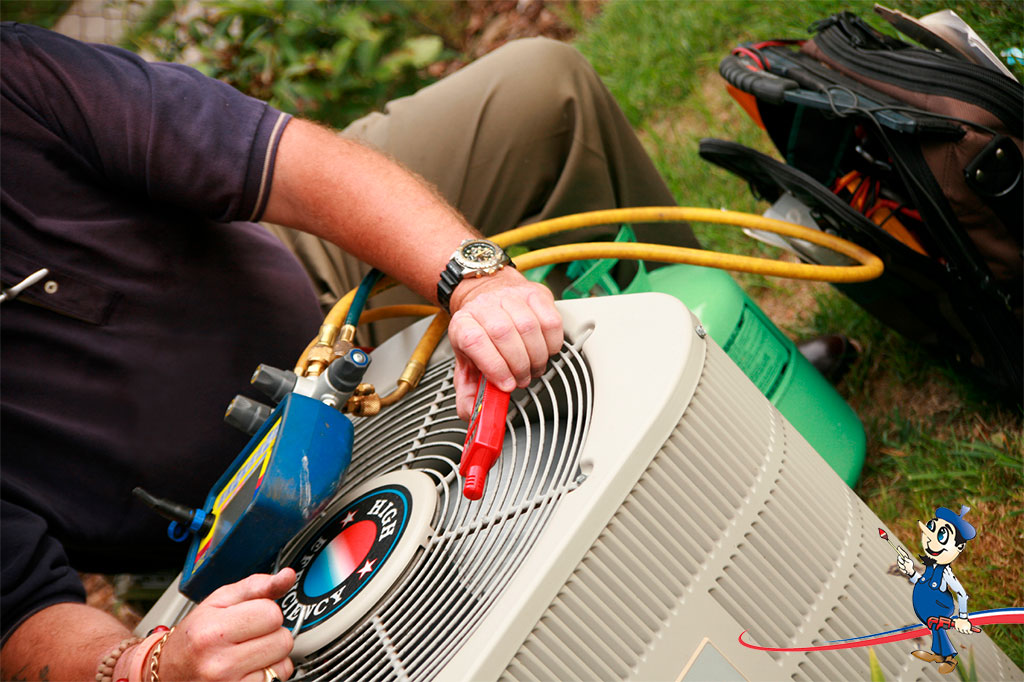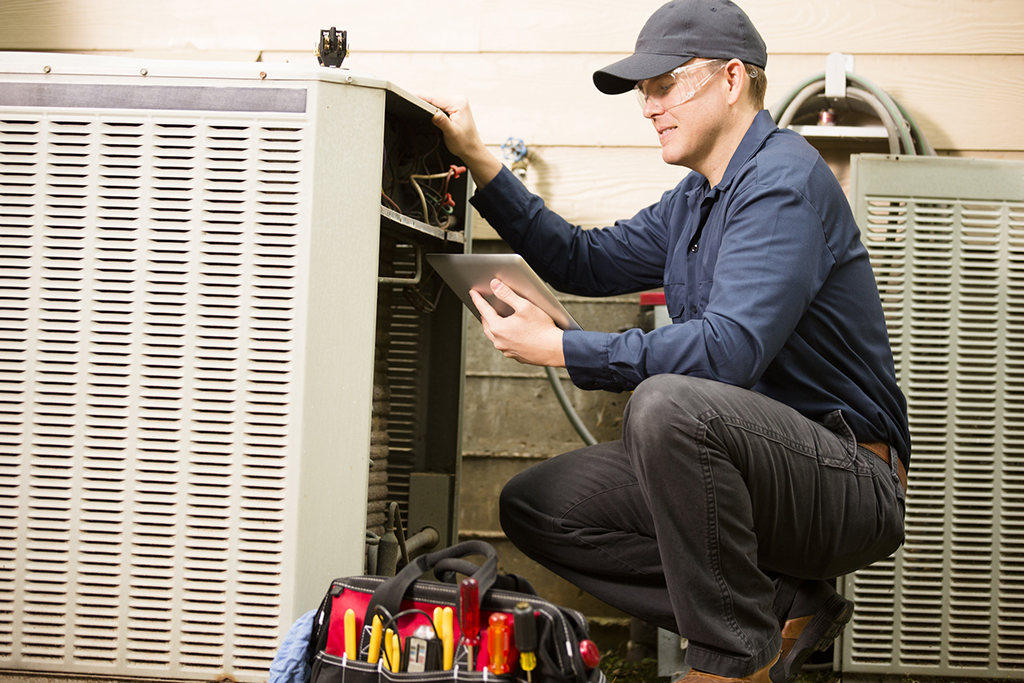Air Conditioning Sound Issues: Recognizing and Repairing the Source

Did you recognize that approximately 75% of home owners experience a/c sound concerns at some time? When your AC starts making odd sounds, it can be rather turbulent to your tranquility and convenience.
From rattling and humming to squealing and banging, these sounds can indicate underlying issues that need interest. Determining the resource of the sound is necessary for efficient repair work and guaranteeing your a/c runs efficiently.

So, if you're tired of putting up with bothersome air conditioner sounds disrupting your peace, there are options handy.
Trick Takeaways
- Regular upkeep is vital to deal with typical a/c noise resources like ductwork issues and damaged motors.
- Address vibrating sounds by inspecting for loosened parts, preserving follower electric motors, and adding vibration isolation pads.
- Screeching and banging noises can be dealt with by examining belts, follower blades, and compressor coils for problems.
- Fixing air conditioning noise troubles by conducting aesthetic inspections, executing soundproofing strategies, and repairing for blockages.
Common Cooling Noise Sources
If your air conditioning system is making unusual noises, maybe because of among several common sources.
One frequent offender is concerns with the ductwork. Over time, ducts can create leaks, loose connections, or even clogs. These problems can create air to move erratically, causing whistling or rattling sounds. An extensive ductwork assessment by a professional can assist identify and rectify these problems, restoring your system's smooth operation.
An additional usual source of sound in cooling systems is a faulty motor. The motor is a critical part that drives the fans and various other moving components within the system. If the electric motor is broken or damaged, it can generate grinding, squealing, or clunking sounds. In such situations, electric motor replacement may be required to remove the resource of the disruption. Normal upkeep and prompt electric motor substitute when required can help maintain your air conditioning system running quietly and effectively.
Diagnosing Rattling and Humming Sounds
To resolve rattling and buzzing noises in your air conditioning system, beginning by examining the parts that might be causing these noises, such as loose components or worn-out components. Resonance seclusion is type in fixing these issues. Check for any loosened screws, screws, or panels that may be shaking versus each various other throughout procedure. Tightening these can often reduce the rattling sounds.
In addition, check the follower motor for any indicators of deterioration. Regular follower electric motor upkeep, such as lubrication and cleansing, can help in reducing buzzing audios brought on by rubbing or breakdown.
If the rattling persists after inspecting and tightening elements, think about including vibration seclusion pads or mounts to absorb the excess vibrations. These pads work as a barrier between the shaking parts, minimizing the sound. Keep in mind that resolving these noises without delay can protect against more damages to your cooling system and guarantee its peak efficiency.
Dealing With Screeching and Banging Sounds
When addressing squealing and banging sounds in your cooling system, beginning by identifying the resource of the audios with an extensive examination of the device's elements. Check the belt tension along with the electric motor bearings, as loose belts or damaged bearings can result in squealing noises. Examine the fan blade for any type of obstructions or problems that could trigger banging noises when the follower revolves. Furthermore, take a look at the compressor coil for any type of debris or concerns that might be developing the sounds.
To deal with screeching sounds connected to belt tension, adjust the stress following the manufacturer's standards to make certain it's within the suggested array. If the electric motor bearings are the culprit, think about oiling them ideally; otherwise, they may need to be changed. For banging noises caused by fan blade concerns, fixing or replace the harmed blades quickly. When it pertains to the compressor coil, cleansing it completely can often fix any noise-related issues. https://norburyacinstallation.co.uk By addressing these prospective sources of squealing and banging sounds, you can recover your cooling system to its finest operating state.
Tips for Repairing A/c Noise
When confronted with air conditioning sound concerns, begin by performing a visual examination of the device's components for any kind of noticeable indicators of damages or wear. Try to find loose parts, damaged belts, or particles that may be causing the sound. If you observe any problems, make sure to tighten up loose elements, replace damaged components, and clean out any particles to see if the noise improves.
To attend to a/c sound problems, think about soundproofing methods to decrease the audio transmission from the unit. Protecting the wall surfaces around the system, mounting soundproofing panels, or positioning rubber pads underneath the unit can assist moisten the sound successfully.
Regular maintenance is key to stop a/c sound. Be specific that the device is clean, lubricated, and properly maintained to lessen possible issues. Repairing actions like examining the fan blades and motor for any type of obstructions can also assist diagnose and fix noise troubles. For minor concerns, do it yourself remedies such as tightening screws or changing elements might settle the noise without the demand for professional help.
Ensuring Effective A/c Procedure

Ensure your a/c runs efficiently by organizing normal upkeep checks and keeping the system tidy and well-lubricated. Ensuring your cooling system works at its ideal not just decreases sound however also lowers power usage. To achieve this, apply noise decrease techniques such as positioning vibration pads under the unit to wet sound transmission and ensuring all elements are firmly tightened. Additionally, clean or change air filters frequently to stop air flow blockages that can stress the system and increase sound degrees.
Energy consumption optimization is necessary for efficient air conditioning procedure. Establish your thermostat to a suitable temperature to stay clear of straining the device. Use ceiling fans to help flow awesome air better, enabling you to raise the thermostat a little without sacrificing convenience. Think about setting up a programmable thermostat to adjust temperature levels instantly when you're away. By adhering to these techniques, you can maintain a comfortable indoor atmosphere while lessening power costs and sound levels.

Often Asked Concerns
Can A/c Sound Degrees Impact the Top Quality of Indoor Air?
High a/c sound degrees can impact interior air high quality by adding to noise pollution, which can affect your health.
To resolve this, consider soundproofing options to minimize the sound from your air conditioning system.
Is There a Relationship In Between A/c Noise and Energy Effectiveness?
When it concerns a/c noise and energy efficiency, there's undoubtedly a connection.
The loud sounds produced by your air conditioner unit can suggest inefficiencies that lead to enhanced power consumption.
By resolving and minimizing the environmental pollution, you can improve the overall effectiveness of your system.
Just How Can I Reduce A/c Noise Without Compromising the Air Conditioning Performance?
To decrease a/c noise without compromising cooling performance, take into consideration soundproofing options like acoustic insulation.
You can enhance performance by adjusting the system for performance while wetting undesirable sounds.
Attempt guaranteeing all parts are appropriately installed and kept, and look for loosened components that can be creating excessive noise.
Are There Any Particular Rules or Standards Relating To Acceptable Noise Levels for Air Conditioning Units?
When it pertains to a/c systems, there specify laws and guidelines in position to ensure conformity with appropriate sound levels. These criteria help suffer a comfortable atmosphere without triggering disruptions.
Regulations relating to sound levels for a/c devices vary depending on area, however usually focus on minimizing sound exhausts to a level that doesn't disrupt day-to-day activities. It is necessary to be mindful of these guidelines to make sure your device meets the essential standards.
What Are Some Long-Term Maintenance Tips to stop A/c Sound Issues in the Future?
To stop air conditioning noise problems long-term, make certain you adhere to regular upkeep. Tidy or change filters, check for loose components, and maintain the system tidy.
Take into consideration soundproofing methods like including insulation around the unit. By remaining on top of upkeep and taking steps to lower sound, you can delight in a quieter and more effective air conditioning system in the future.
Verdict
Now that you have determined the usual resources of cooling sound and found out exactly how to identify and fix them, you can delight in a quieter and a lot more effective cooling system.
Keep in mind to on a regular basis check for any uncommon noises and address them quickly to prevent any type of further damage.
By looking after your a/c unit, you can assure it operates smoothly and properly for several years to come.
